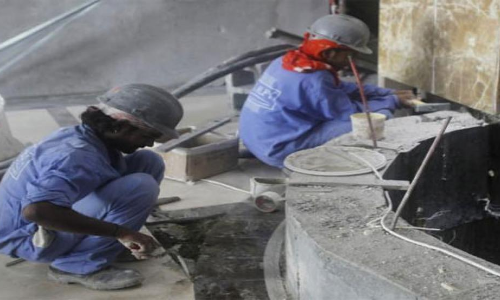Qatar Football World Cup Workers Suffer 'Appalling treatment' Says Amnesty

Amnesty has denounced the forced labour the migrant workers employed for Qatar World Cup suffer from.
Amnesty has denounced the forced labour the migrant workers employed for Qatar World Cup suffer from.
For Prem -- a metal worker and father of three from Nepal who carried out work on the Khalifa International Stadium in Doha between February and May 2015 -- that price was the loss of his family's home after he experienced a three-month delay in being paid, according to Amnesty international.
Prem is just one example of ongoing exploitation of migrant workers in Qatar at a venue for the 2022 World Cup that soccer's world governing body FIFA can no longer turn "a blind eye" to, says the human rights organization's new report published Thursday.
Amnesty said it has found evidence of "systematic abuses," including forced labor of migrant workers at the Khalifa Stadium.
"If the system in Qatar doesn't change, then every man, woman and child who goes to the World Cup is likely to meet a migrant worker who is exploited," Audrey Gaughran, Amnesty's director of global issues and research, told CNN in a phone interview.
But because he wasn't getting paid, Prem's family could no longer keep up with loan and rental repayments and ended up losing their home.
"My family is now homeless and two of my younger children have been taken out of school," he said. "My parents had to shift to my brother's house in our village, but it is far and there are no facilities there.
"Every day I am in tension, I cannot sleep at night. This is a torture for me."
Amnesty on the others hand accuses the Fifa's 'lack of significant action'. The Fifa responded by claiming 'it is absolutely aware of the risks the building workers are facing at the moment in Qatar and the working conditions they find themselves in this country'. 'Since 2011, the Fifa has met major representatives (or makers), including Amnesty, in an effort to succesfully develop fairer working conditions, says the report.
About 5100 workers are currently being employed on the World Cup sites. This will rise to 36000 by 2018.














